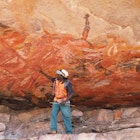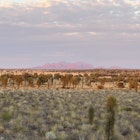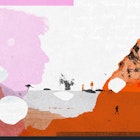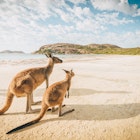
Aug 29, 2025 • 10 min read
From staying aware of swooping magpies to what side of the street to walk on, here's everything you need to know for your trip to Australia.

Aug 29, 2025 • 10 min read
From staying aware of swooping magpies to what side of the street to walk on, here's everything you need to know for your trip to Australia.

Aug 26, 2025 • 9 min read
Australia is home to more than 100,000 significant Aboriginal rock art sites. Here are some of the best.

Aug 20, 2025 • 11 min read
Experience the very best of Australia with this guide to the country's top things to do.

Aug 19, 2025 • 6 min read
Which of these two wonderful countries should you pick? We asked two writers to make the case for each.

Jul 11, 2025 • 10 min read
From culture-packed coastal towns and cities to the iconic Red Centre, here are the best places to visit in Australia.

Jul 7, 2025 • 8 min read
Dazzling Sydney or cultured Melbourne? Two writers take sides in the contest between one's shining surroundings and the other's days full of diversions.

Jun 28, 2025 • 11 min read
Visitors take and ultimately return items from Mungo National Park, leading to a lifetime of bad karma. But atonement can lead to more than just better luck.

Jun 26, 2025 • 9 min read
Australia has a diverse food and drink scene. Here's our pick of the best flavors and where to try them.

Jun 12, 2025 • 23 min read
Whether it’s the atmosphere or the culture, some places are naturally suited for people traveling alone. These 23 spots are perfect for solo travelers.

May 7, 2025 • 7 min read
Stay connected on your trip Down Under with these helpful tips.

Mar 26, 2025 • 6 min read
Chase fiery foliage or cozy up with a hot chocolate in these Australian towns that deliver the best autumn vibes.

Mar 24, 2025 • 10 min read
Epic overnight trails crisscross Australia. Here are our favorites.

Mar 7, 2025 • 9 min read
Whether you’re into swanky boutique stays or a weatherboard shack, Australia’s got a coastal town for you.

Feb 10, 2025 • 8 min read
Australia is not a cheap destination, but these money-saving tips will stretch your Aussie dollars a little further.

Feb 8, 2025 • 8 min read
From its tropical reefs to its snow-covered mountains, Australia is the ultimate family travel destination. Here's what you need to know.

Feb 8, 2025 • 9 min read
Find your way around Australia with our top tips for road trips, internal flights and long-distance coach and train services.

Jan 7, 2025 • 16 min read
From scenic day walks to epic treks that take several weeks, these are some of the best hiking routes in Australia.

Dec 31, 2024 • 6 min read
It’s always snowing somewhere: here’s our guide on where to ski throughout the world all year long.

Sep 18, 2024 • 2 min read
Australia offers far more than meets the eye.

Sep 11, 2024 • 7 min read
From planning your route to choosing your motor home, here's what you need to know before taking a camper round Australia.

Sep 9, 2024 • 7 min read
Here's our guide to Aboriginal and Torres Strait Islander tourism opportunities in Australia.

Sep 6, 2024 • 11 min read
Australia has an incredible breadth of unique wildlife but it can be a challenge to locate them. Here's how to respectfully observe the cutest critters.